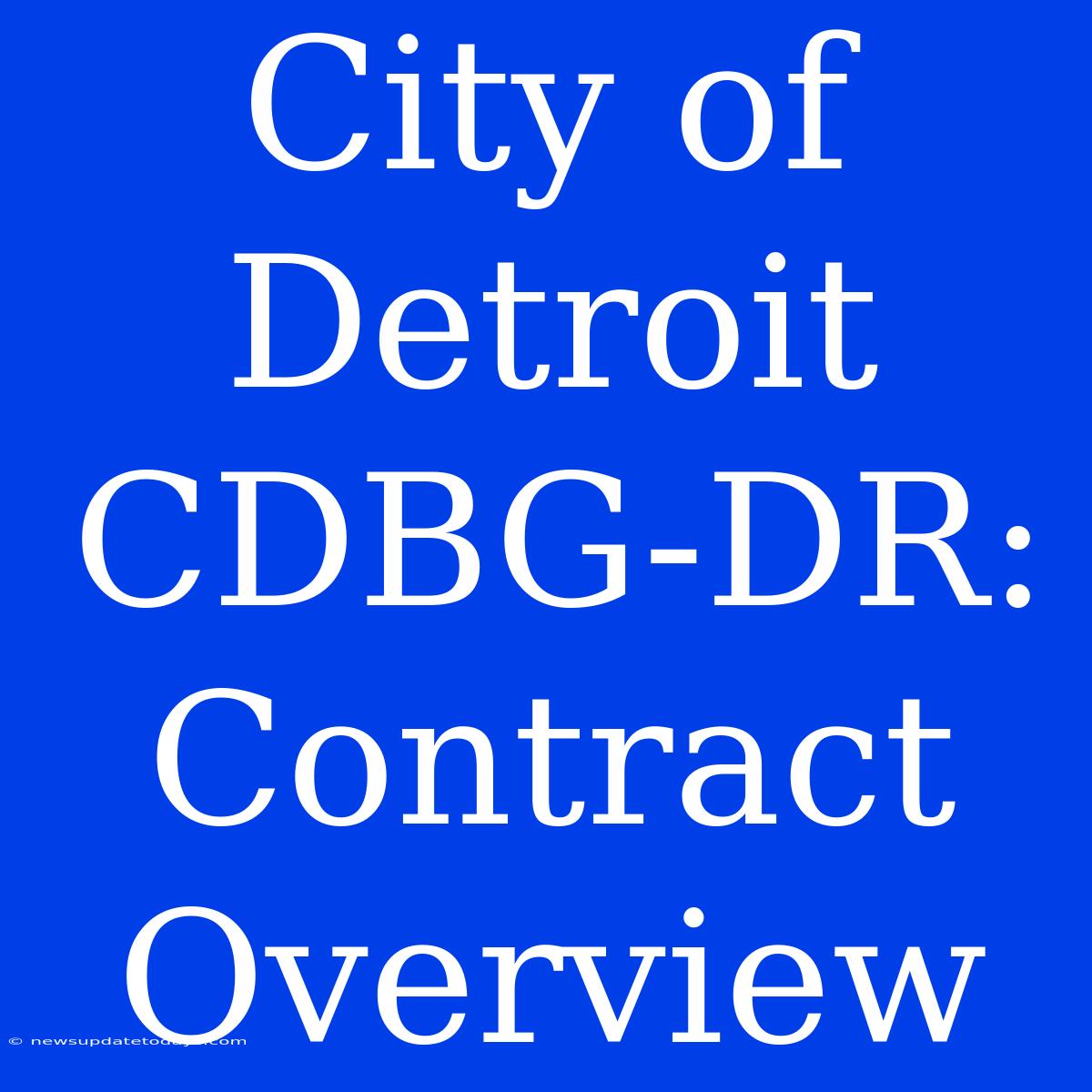City of Detroit CDBG-DR: A Contract Overview
The City of Detroit's Community Development Block Grant-Disaster Recovery (CDBG-DR) program is a significant initiative aimed at rebuilding and revitalizing communities impacted by disasters. Understanding the contracts associated with this program is crucial for anyone involved in its implementation or seeking funding. This overview provides insights into the key aspects of these contracts.
What is CDBG-DR?
The CDBG-DR program, funded by the U.S. Department of Housing and Urban Development (HUD), provides grants to localities to address long-term recovery needs following a presidentially-declared disaster. For Detroit, this funding has been instrumental in addressing housing needs, infrastructure improvements, and economic development initiatives in areas affected by various challenges.
Key Contractual Elements in Detroit's CDBG-DR Program
Detroit's CDBG-DR contracts typically encompass several crucial elements:
1. Scope of Work: This clearly defines the project's objectives, deliverables, and timelines. Contracts will specify the services or goods to be provided, often detailing construction projects, community development initiatives, or administrative support services. Specific performance metrics are also usually included.
2. Budget and Payment Terms: Contracts outline the total project budget, outlining both the CDBG-DR funding allocation and any required matching funds. They also specify payment schedules, milestones for release of funds, and procedures for submitting invoices and supporting documentation. Understanding these terms is essential for effective financial management.
3. Compliance Requirements: CDBG-DR funds are subject to stringent federal regulations. Contracts will detail the compliance requirements contractors must meet, including adhering to prevailing wage laws, equal opportunity employment guidelines, and environmental regulations. Failure to comply can result in penalties or contract termination.
4. Reporting and Monitoring: Contracts usually include detailed reporting requirements. Contractors are responsible for submitting regular progress reports, financial statements, and other documentation to the City of Detroit. This ensures transparency and accountability in the use of CDBG-DR funds. Monitoring by the city ensures the project aligns with program objectives.
5. Contractual Disputes and Termination: The contract will specify procedures for resolving disputes and managing contract modifications. It will also define grounds for termination, including breach of contract, non-performance, or failure to meet compliance requirements.
Finding Information on CDBG-DR Contracts in Detroit
Information on specific CDBG-DR contracts awarded by the City of Detroit is often available through:
- The City of Detroit's website: Check the official website for procurement or grant opportunities sections.
- HUD's website: HUD's website may also contain information on awarded CDBG-DR grants.
- Freedom of Information Act (FOIA) requests: If information is not readily available online, a FOIA request can be submitted to access public records.
Conclusion
Understanding the intricacies of the City of Detroit's CDBG-DR contracts is crucial for anyone involved in the program. This overview highlights some of the key elements, emphasizing the importance of reviewing the specific contract terms for each project. Diligent attention to compliance requirements, reporting, and budget management is essential to ensuring successful project completion and the responsible use of taxpayer dollars. By carefully navigating these contractual elements, the City of Detroit and its contractors can effectively contribute to the revitalization of the city’s affected communities.

